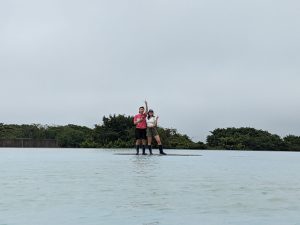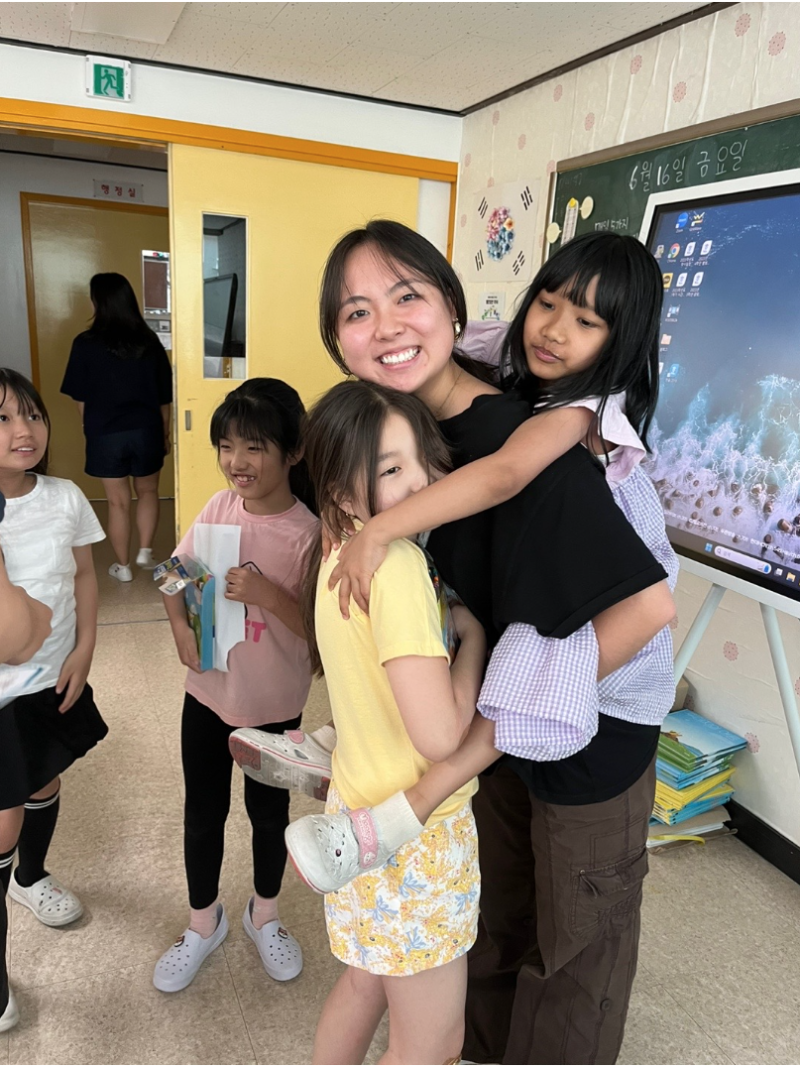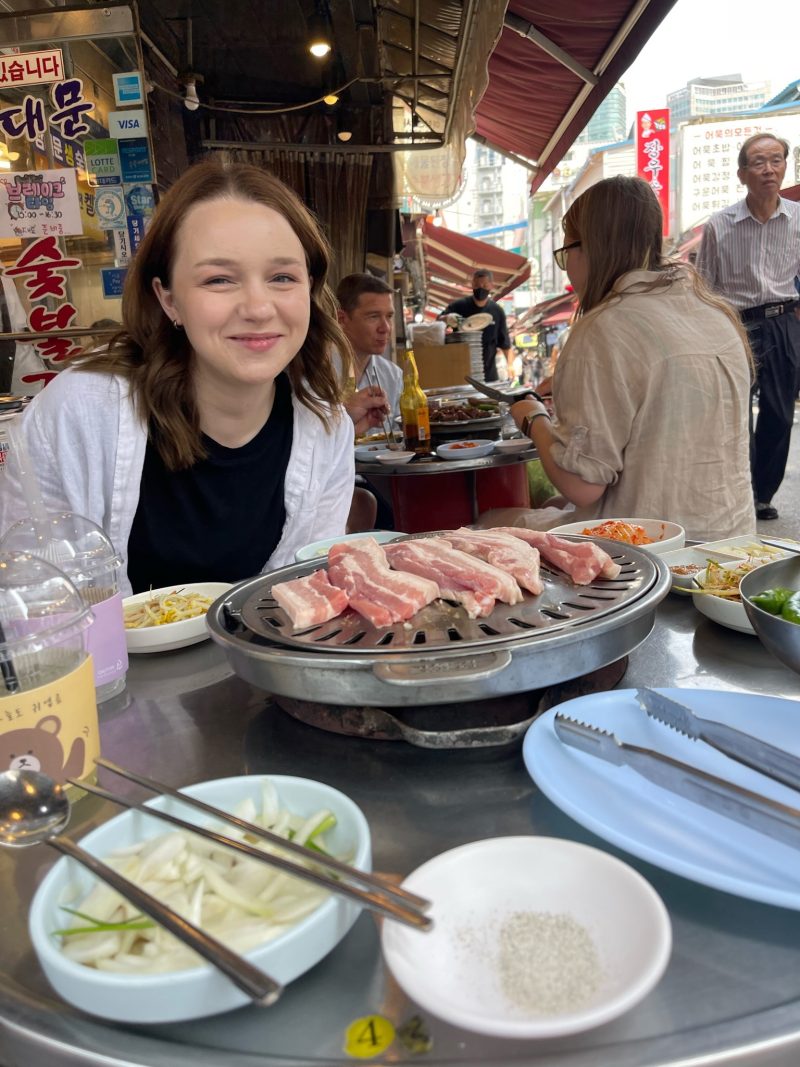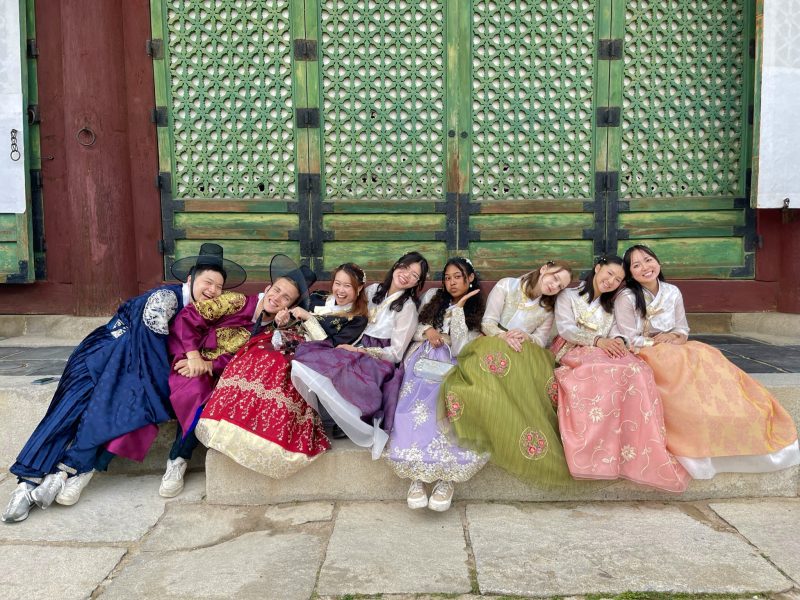My first trip to Jeju was very positive and this excursion was an appropriate compliment to our studies as well as community involvement. Most of our time in Jeju was spent engaging with community members as well as going on guided tours in various museums. However, what I will remember most from this trip was the time I spent with my group mates and our discourse regarding the things we had experienced from that day.
One of my favorite activities from this trip was hiking Geomun Oreum on the first day. Although it was physically demanding due to our 5 am departure from Seoul that day, it was very relaxing to be immersed in a natural environment far away from city lights. Something I missed from home was the wide-open valleys of Wisconsin. It rained a lot during the hike and feeling the cold water on my skin felt refreshing after spending weeks in a large city.
I faced the consequences of a language barrier once again since all of our community interactions with the people of Jeju Island were in Korean. It was difficult to ask follow-up questions or even gain all of the information they were providing us. Because of this, I appreciated that the museums we visited were translated into English almost in their entirety. Even with some difficulties, the first-hand accounts had a strong impact even if I couldn’t understand them. Even without words, through the expression of the islanders, I was able to observe the solemnity and gravity of the topics that we were looking into.
The most impactful part of the trip was visiting Gwangjang village and protesting U.S. military occupation. While I only observed the protest, I was proud of myself for being able to communicate to the professors my discomfort with what we were doing. The protest was brought upon us very suddenly mid-tour when a village member mentioned a “human chain.” I wished the professors had iterated that this was a part of the itinerary since I would have been more likely to participate had I known more in advance. Furthermore, I didn’t understand the reason for US military involvement in Jeju to the extent that I could defend it in full confidence. It also scared me to protest in a foreign language as I couldn’t read any of the posters being used for the protest.
However, I appreciated how the professors were open to feedback and thinking about the nuances of protesting for things that you don’t have a direct connection to. Overall, I was able to experience a side of Jeju that wouldn’t be possible in a vacation and I will always think about what I learned in those museums back in the States and Japan.




